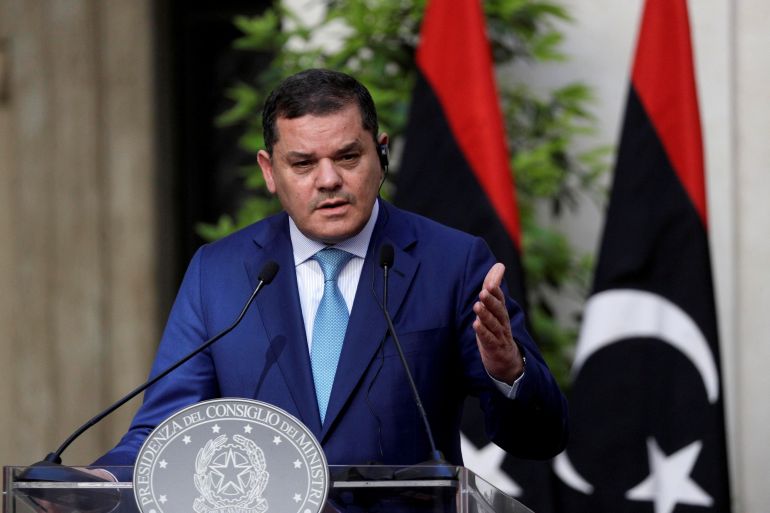US passes bill enabling sanctions on foreign actors in Libya
The legislation would sanction foreign actors backing rival Libyan factions loyal to forces in either Tobruk or Tripoli.

The US House of Representatives has passed a bill that could sanction foreign actors supporting rival factions in Libya.
The House on Tuesday voted 386 to 35 in favour of the Libya Stabilisation Act, introduced by Democrat Ted Deutch and Republican Joe Wilson.
Keep reading
list of 3 itemsLibya’s parliament passes no-confidence vote in unity government
Libya’s interim government must end civil society crackdown
The move came one week after Libya’s eastern-based parliament passed a no-confidence vote in the country’s unity government based in Tripoli under the administration of interim Prime Minister Abdul Hamid Dbeibah, in a new blow to United Nations-backed peace efforts and jeopardising upcoming elections.
The escalation comes amid growing tensions between Dbeibah’s Tripoli-based administration and the eastern-based parliament in Tobruk, three months in advance of the planned national elections.
According to the bill, sanctions can be imposed on “foreign persons leading, directing, or supporting certain foreign government involvement in Libya … foreign persons threatening the peace or stability of Libya … [and] foreign persons who are responsible for or complicit in gross violations of internationally recognised human rights committed in Libya”.
The legislation would sanction foreign actors backing Libyan forces loyal either to Tobruk or Tripoli.
The bill also allows US President Joe Biden to defer the sanctions if he “determines that the parties to the conflict in Libya have agreed to and are upholding a sustainable, good-faith ceasefire in support of a lasting political solution in Libya”.
Dbeibah’s transitional administration took office in February this year with a mandate to guide the North African country to elections on December 24, part of a UN-led process aimed at ending a decade of violence following the fall of dictator Muammar Gaddafi.
The interim government followed an October ceasefire between western Libyan forces and eastern-based renegade military commander Khalifa Haftar, who had waged a failed year-long assault on the capital that left thousands dead.
Earlier this month, speaker Aguila Saleh ratified an electoral law seen as bypassing due process and favouring Haftar.
Critics of Saleh’s move have pointed to a clause stipulating that military officials may stand in presidential polls on condition they withdraw from their posts three months beforehand.
That would allow for a presidential run by Haftar, whose forces control eastern Libya, as well as parts of the south.
Mohamed Eljarh, a consultant at Libya Outlook, tweeted last week that the no-confidence vote was “a major escalation” by the parliament “at this critical juncture” that would “add to the confusion and uncertainty” in Libya.